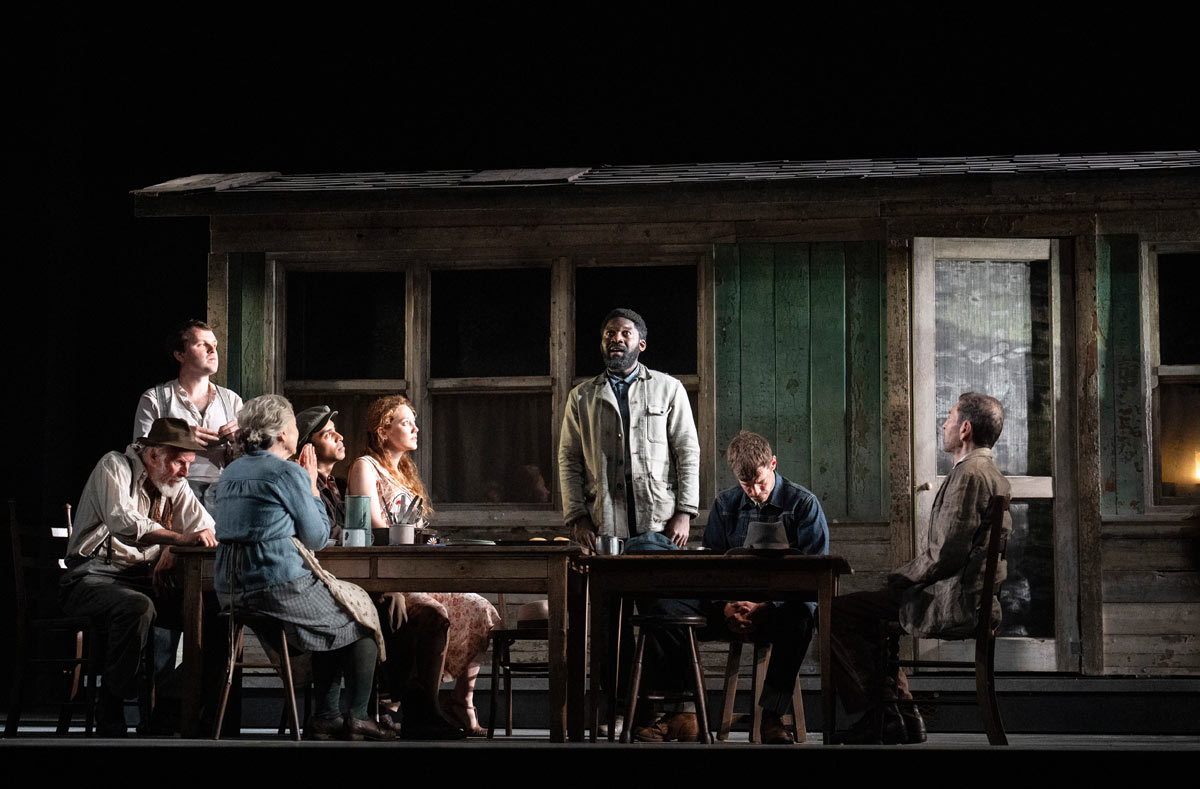After gaining parole, a son returns from 4 years in prison to his family homestead, to find it abandoned. Along with a preacher whose experiences have caused him to disavow his calling, he finds his family on the brink of leaving for a new life in California where (according to flyers) good workers are needed and the rewards are plentiful. During their overladen jalopy’s thousand mile journey, a succession of family members die or break-off to find their own way in the world as the core group helplessly realise just how much the game of life is stacked against them. Gradually, through their encounters with greedy and exploitative landowners and their self-appointed vigilante enforcers, whole families succumb to poor living conditions with meagre hourly wage rates barely sufficient to enable survival. Having left one kind of hell, the promised land seems as far away as ever.
In Director Carrie Cracknell’s production, most family discussions are conducted while packing and unpacking the jalopy and setting up camp at various stops along the journey. But Alex Eales set design also affords one especially effective and surprising touch as the weary travellers encounter a river and thoroughly embrace the relief it affords. Also worked into the material is a 4 piece band of players who under the leadership of Maimuna Memon stroll in and out of scenes with their guitar, banjo, fiddle and accordion accompaniment, linking set changes and providing soothing segues as the story progresses.
Whilst THE GRAPES OF WRATH is largely an ensemble piece, much of the load is carried by Ma and Pa Joad (Cherry Jones and Greg Hicks) their rebellious son Tom (Harry Treadaway) and the former preacher Jim Casy (Natey Jones) in a cast just shy of thirty players.
Steinbeck’s 1939 novel was a well-researched and unremitting tale of haves and have nots, poor ecological ideologies, political abandonment and desperation. The stage adaptation adds to this list, the gradual erosion of the single dependable truth which guided the Joad family’s decisions from the outset - namely that a group is stronger when it sticks together. Its inevitable disintegration, makes for a cruel and sobering lesson.

 The Grapes of Wrath cast at the National Theatre. © Richard Hubert Smith.
The Grapes of Wrath cast at the National Theatre. © Richard Hubert Smith.

